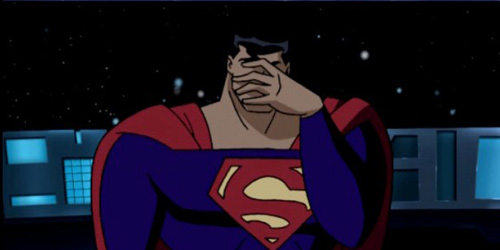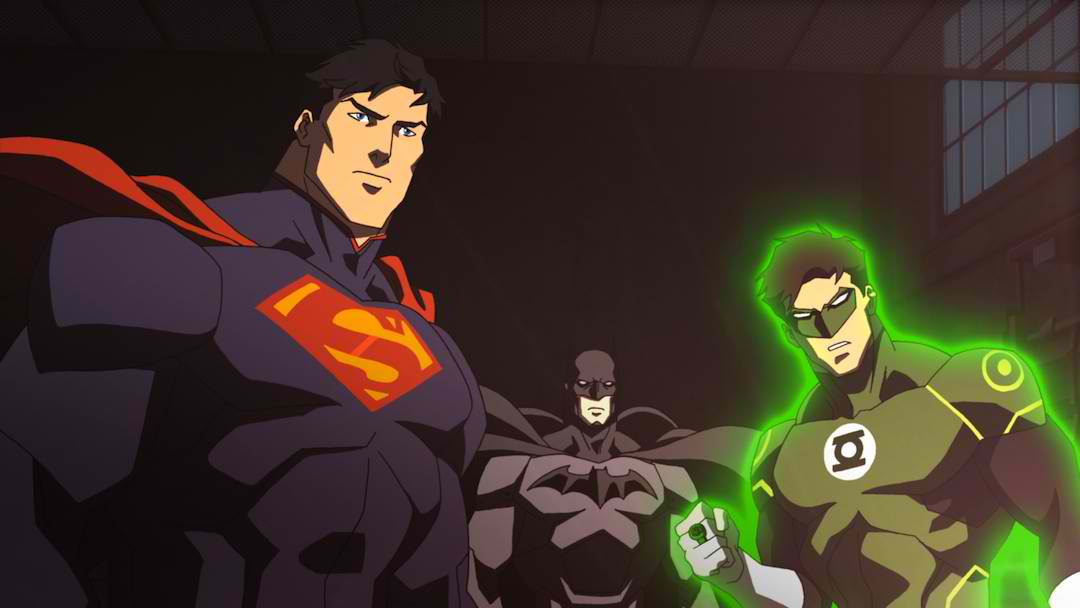From Sleazy Ducks to Infinity Stones: A History of Marvel Movies
When Avengers: Infinity War opens, the 19th Marvel movie will unleash Thanos (Josh Brolin) on Marvel’s heroes and box office records everywhere. The third Avengers entry isn’t just this generation’s biggest blockbuster event, but also a symbol of success that goes beyond the confines of the worlds that Stan Lee helped create. In fact, Marvel is so successful that it pissed off old-guard filmmakers like James Cameron and Steven Spielberg because they can’t accept that a movie genre based on the funny books is now worth as much as a bunch of small countries on sale. All this while their attempts to (respectively) make a franchise about preachy 10ft, tree-hugging Smurfs and relieving the glory days with outdated ‘80s-era trends are generally ignored. But Marvel’s evolution from laughing stock to cinematic juggernaut was not an easy one, and it’s a history worth revisiting before watching Thanos murder Earth’s mightiest heroes.
Days of Superhero Movies Past
Years before the Avengers became pop culture icons, Marvel was known for three franchises: the Wesley Snipes vehicle Blade, Sam Raimi’s Spider-Man trilogy and X-Men. Despite these series’ weaker entries (specifically: Blade Trinity, Spider-Man 3, anything between X2: X-Men United and X-Men: Days of Future Past), they were exceptions to the rule. For the longest time, superhero movies were dismissed as box office poison – and Marvel’s early years didn’t help matters.
Case in point, Marvel’s first theatrical release after a World War 2-era propaganda movie starring Captain America was Howard the Duck (1986) – the cult flop that starred an animatronic, hedonistic duck produced by George Lucas, aka the guy who thought Jar Jar Binks was the key to the Star Wars prequels. From that point forward, Marvel would throw whatever they had at the wall only to see almost everything fall flat, including:
- A Dr. Strange TV-movie that felt like a bad drug trip
- Captain America riding a dopey stunt motorcycle
- Casting David Hasslehoff as Nick Fury and Dolph Lundgren as the Punisher
- A Wolverine movie so horrible it became a recurring punchline in the Deadpool films
With the rights to multiple characters sold to various Hollywood studios to save itself from bankruptcy and internet-favorite Nicolas Cage devouring the scenery as the Ghost Rider, Marvel’s pre-MCU future was bleak. But in 2003, Marvel got the brainwave that would turn the tides in their favor and change the filmmaking landscape forever.
Avenging a Dying Brand
While reaping the fruits of success from the critically-acclaimed X2 and trying to bury Daredevil and The Hulk, Marvel wanted more. Talent agent David Maisel suggested that Marvel fund its own movies instead of relying on other studios, but only after they bought back the rights to its wayward heroes.
Marvel listened, spending the next few years reclaiming their previously sold characters and finally launching the MCU by using a relatively-ignored superhero as its foundation: Iron Man. The risks were high, since Marvel was not just financing a movie about a character only comic book readers recognized, but they chose then-Hollywood pariah Robert Downey Jr. to star as the titular character. Before he became THE box office golden boy, Downey was on a slow grind back to the top following his rehabilitation to recuperate from years of substance abuse and personal problems. To say that it was unthinkable that he’d even be considered for a blockbuster franchise during the early 2000’s is an understatement.
Knowing how much they could lose and with the rights to at least 10 characters (including: Black Panther, Cloak and Dagger, Hawkeye, Thor, etc.) put up as collateral with the bank should Iron Man bomb on opening day, Marvel willingly put the fate of their whole brand on the shoulders of a genius, billionaire, philanthropist playboy. Ignoring outliers such as the god-awful Fant4stic that were not made under the MCU banner, it could be said that the rest is Marvel history.
Infinity War and Infinite Universes
10 years, 12 TV series and 18 movies later, the MCU – led by producer Kevin Feige – has become the most lucrative movie franchise in history. It’s gotten to the point where the lowest-grossing MCU movie – The Incredible Hulk – earned upwards $130 million and it’s considered to be a disappointment. Marvel is so sure of itself that it plans to release more than 20 movies after Infinity War, such as:
- A fourth Avengers film
- Captain Marvel’s (played by Brie Larson) very own solo movie
- Sequels for Ant-Man, Black Panther, the Guardians of the Galaxy and Spider-Man
- And many more currently untitled projects
But with every success in Hollywood comes imitators, all with the (foolish) hopes of beating Marvel at its own shared-universe game. From the disastrous Spider-Man reboot to the laughably edgy Fant4stic and DC Extended Universe (DCEU) to the even more ridiculous Dark Universe, many have tried and failed to strike the same oil that Marvel found in 2008. As Marvel slowly regains control of their prodigal properties, it may only be a matter of time before the comic titan simply buys out the competition instead of confronting them. This was proven by the well-documented reclamation of Spider-Man from Sony just in time for Captain America: Civil War, and the merger between 20th Century Fox (current owners of the Fantastic Four, X-Men and their respective villains) and Walt Disney Studios (which bought Marvel in 2009) that’s being finalized as of this writing.
Infinity War embodies the success of the modern superhero film and the childhood dreams of those who grew up reading comics, especially those who once hoped that their favorite heroes would get better cinematic representation than the relic of the 2000’s Emo-scene that is Elektra or Shaquille O’ Neal cosplaying Steel. As this chapter of the MCU comes to a close, another one is just about to begin. And if Marvel’s track record is anything to go by, it’ll be a long time before it even considers ending the story.

![[Credits: NBC, Universal Pictures, Columbia Pictures]](http://www.flipgeeks.com/wp-content/uploads/2018/04/Early-Marvel-520x260.jpg)
![Iron Man [Credit: Marvel Studios]](http://www.flipgeeks.com/wp-content/uploads/2018/04/Tony-Stark-520x286.jpg)
![Avengers: Infinity War [Credit: Marvel Studios]](http://www.flipgeeks.com/wp-content/uploads/2018/04/Infinity-War-520x260.jpg)






























